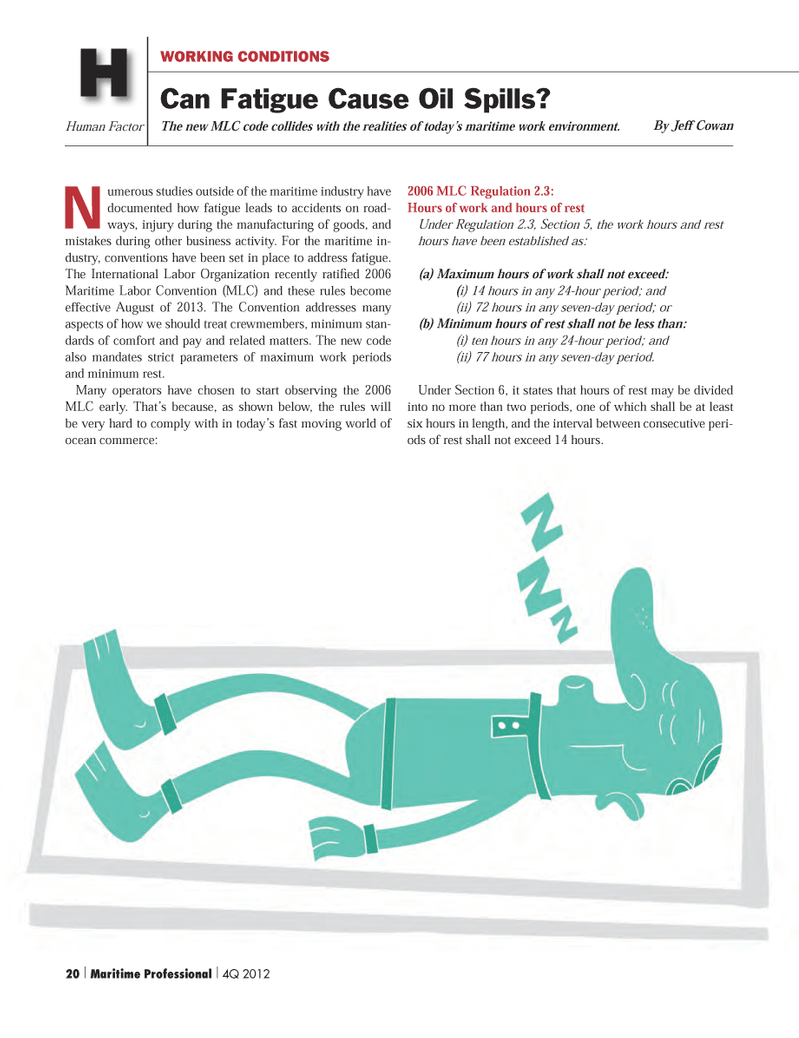
Page 20: of Maritime Logistics Professional Magazine (Q4 2012)
The Environment: Stewardship & Compliance
Read this page in Pdf, Flash or Html5 edition of Q4 2012 Maritime Logistics Professional Magazine
Numerous studies outside of the maritime industry have documented how fatigue leads to accidents on road- ways, injury during the manufacturing of goods, and mistakes during other business activity. For the maritime in- dustry, conventions have been set in place to address fatigue. The International Labor Organization recently ratiÞ ed 2006 Maritime Labor Convention (MLC) and these rules become effective August of 2013. The Convention addresses many aspects of how we should treat crewmembers, minimum stan- dards of comfort and pay and related matters. The new code also mandates strict parameters of maximum work periods and minimum rest.Many operators have chosen to start observing the 2006 MLC early. ThatÕs because, as shown below, the rules will be very hard to comply with in todayÕs fast moving world of ocean commerce: 2006 MLC Regulation 2.3: Hours of work and hours of rest Under Regulation 2.3, Section 5, the work hours and rest hours have been established as:(a) Maximum hours of work shall not exceed: (i) 14 hours in any 24-hour period; and (ii) 72 hours in any seven-day period; or (b) Minimum hours of rest shall not be less than: (i) ten hours in any 24-hour period; and (ii) 77 hours in any seven-day period. Under Section 6, it states that hours of rest may be divided into no more than two periods, one of which shall be at least six hours in length, and the interval between consecutive peri- ods of rest shall not exceed 14 hours. Human Factor WORKING CONDITIONS Can Fatigue Cause Oil Spills?HBy Jeff Cowan The new MLC code collides with the realities of today?s maritime work environment. 20 | Maritime Professional | 4Q 2012MP #4 18-33.indd 20MP #4 18-33.indd 2011/12/2012 9:35:20 AM11/12/2012 9:35:20 AM

 19
19

 21
21
